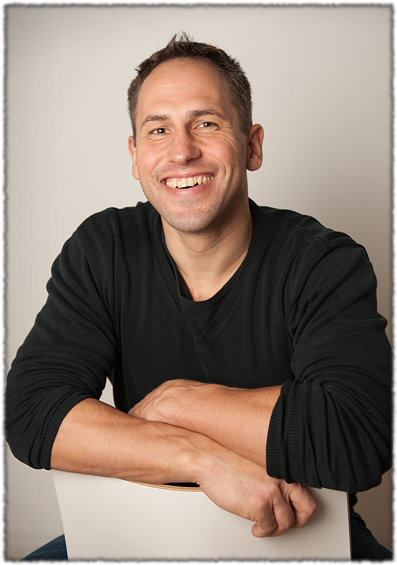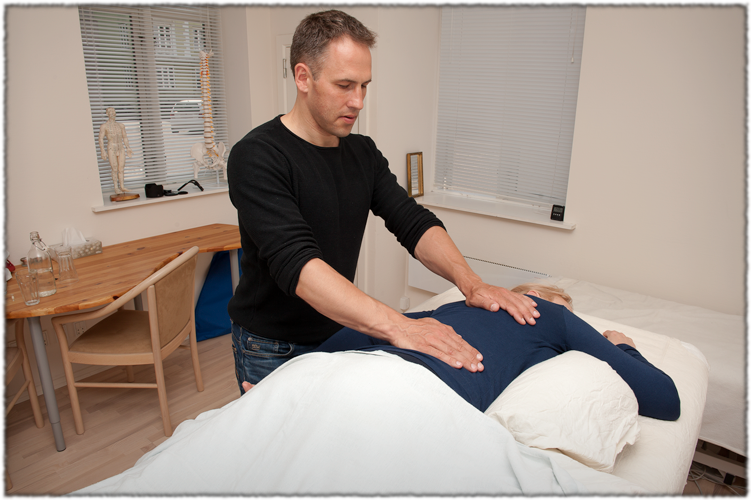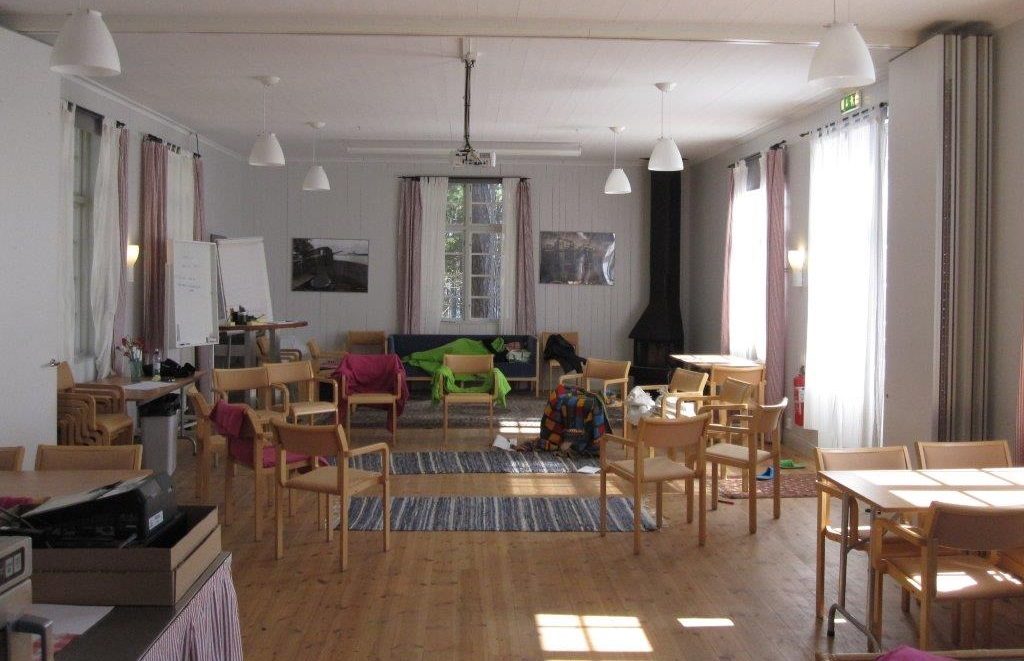In English
Psychotherapy – Body Therapy – Group Therapy

I offer psychotherapy, body therapy (Touching Dialogue (TD)) and group therapy at Østerbro in Copenhagen.
I am a certified psychotherapist (MPF) in The Danish Association of Psychotherapists (“Psykoterapeutforeningen”) and I have recieved the European Certificate of Psychotherapy (ECP) from EAP, and am also a full member of EAGT. I offer gestalt therapy in the form of counseling therapy, optionally combined with body therapy or group therapy.
English is not my mother tongue, but I have taken most of my education through English language as the gestalt training at GIS-International includes participants from many countries. Also my training as Touching Dialogue Therapist has been in English for most parts.
Due to this I feel comfortable using English during therapy and TD-sessions – so you are welcome if this should be the case for you.
I have not translated my entire homepage to English – but:
- Concerning gestalt therapy you can find many good books or homepages describing gestalt therapy.
- Concerning Touching Dialogue you can find information about TD, in English, on the common homepage for TD-therapists: touching-dialogue.dk. You can also find books on my “Links and litterature” page and see a basic demonstration of what a Touching Dialogue session can look like here.
Psychotherapy
There can be many reasons for wanting to start a course of individual therapy. Below are examples of the topics I often encounter and work with as a psychotherapist. Maybe you want to work with some of these topics – or maybe you have a completely different reason for wanting to go to psychotherapy?:
- Close relationships and difficult relationships – better communication and more rewarding relationships
- Self-esteem – better self-esteem and acceptance of yourself
- Shame – process and let go of old life-limiting shame patterns
- Asault/abuse – work with consequences of verbal or psychological/physical asault/abuse
- Anxiety – to deal with and reduce/become free of anxiety
- Sexuality and attraction – unfolding your sexuality
- Relationships – monogamous, polyamorous, open relationships…
- Loneliness – finding a way out of feelings of loneliness
- Grief or depression – process grief or depression and get the spark of life back
- Substance abuse – work to get rid of substance abuse
- Perfectionism – becoming more relaxed and joyful
- Stress – physical and mental. Set boundaries and choose a healthy lifestyle for you
- Setting boundaries – clear and distinct boundaries, without becoming rigid
- Honest and authentic relationships with family/friends/partners …
- Unfolding abilities and interests that you are withholding
- More life, joy, creativity, spontaneity, closeness, intimacy, self-esteem, ….
Challenge and adventure: Working with yourself in therapy can be challenging – if you want to change and develop, or process unpleasant experiences. The changes require you to dare something and jump into the unknown. It can give feelings of insecurity or inadequacy – but at the same time it can also be a journey of development and an adventure. An adventure that gives more life, joy, energy and pride in experiencing a development towards becoming better at mastering the challenges and crises we all encounter throughout life.
“To dare is to lose your footing for a short moment – not to dare is to lose life/lose yourself“.
Søren Kierkegaard
Gestalt therapy has an exploratory, experimental approach that helps you to get an immediate experience and awareness – here & now – to your current situation or unconscious patterns. I use classic gestalt therapy techniques, such as chair work, psychodrama/role play, drawing therapy, dream work and various mindfulness exercises, to help you explore and clarify what is happening in different situations, and support you in more conscious choices and new ways of acting.
You are most welcome to contact me if you want to know more about my approach to gestalt therapy or have questions to psychotherapy in general.
Body Theraphy
Touching Dialogue (TD) is a body-oriented psychotherapy that influences on deep bodily levels – on a cellular level. TD is a good way to work on changing bodily stored beliefs and habits and opening up for new possibilities. In a TD session, I first examine as a therapist, together with you, what your focus or desire for change is for today’s session; when the positive “Yes!.. I want…“-energy comes from the cell membranes, you as a client can decide where you want to direct this energy.
In a TD session there is room to explore your body sensations and work on developing new areas of your personality. TD can also support you in changing old patterns of restraint or negative beliefs that you have learned at various times throughout your life – and which may now be limiting you in different ways. There is an opportunity to work with many different sides of yourself.
Some examples could be:

- More life in your life – passion and love
- Feel more in touch with your body, and make decisions based on body sensations
- Be more in touch with your emotions; joy, sadness, sexuality, anger – vulnerability …
- Reducing stress and making decisions to reduce stress
- To develop creative abilities and ideas
- More joy and contact with friends, family or partner
- A more relaxed and secure feeling in your body
- More self-esteem and authenticity
- To be clearer and more visible – to dare to speak your opinion
- A more open, honest and close contact with your partner
- Let go of bad habits and choose new and healthier attitudes
Touching Dialogue opens up for an inner permission – on a deep, unconscious and bodily level – for a development that sometimes cannot be reached via traditional talking therapy. TD is a form of therapy that focuses on supporting you in changing an inner sensation or bodily attitude from:
Uncertainty – limitation – restraint – prohibition – “I’d rather not…“
– to a state of:
Safety – permission – “Yes!” – acceptance – self-confidence – desire – spontaneity – “I dare to… I want to…“.
It can be difficult to put into words, and this is precisely one of the strengths of Touching Dialogue, as this form of therapy works on a deeper – before linguistic – level. The Touching Dialogue logo shows it without words:

If you do understand some Danish, and want to know more about the background of Touching Dialogue and the theory behind it, then TD therapist and TD teacher, Stefan Green Meinel, has made a good and illustrative video in Danish (11 min.), which can be seen here. If you want to see a demonstration of how a Touching Dialogue basic session could take place, a video with English speech (11 min.) can be seen here.
You are most welcome to contact me if you have questions or want to know more about Touching Dialogue and body therapy.
Group Therapy

Group therapy is an exciting “laboratory” where social skills and awareness can be nurtured and developed in a safe process in the group. It can create fertile ground for more joy and an exciting development.
At the moment, I offer 2 different therapeutic group courses: A personal development group – and a more physically oriented Yes/No-group, where there is a special focus on bodily signals. I often work together with a colleague in the groups.
Group therapy can provide the opportunity for important insights and feedback, and give a boost of energy for personal development. In group therapy, we work with relationships and communication in a more immediate “here and now” way, which cannot be achieved in the same way in individual therapy. Another immediate advantage of group therapy is also that the price is significantly lower than the price of individual therapy.
Group participants are encouraged to share their experiences openly and honestly in the group, – and all group participants’ individual pace is respected, so you share only when you want it and are ready for it. All group participants have an obligation of confidentiality in connection with the group sessions, so that a safe and open atmosphere in the group is supported.
Group therapy can easily stand alone. For individual clients, I often find that participation in group therapy can contribute with a boost of energy and motivation. This “fuel” and awareness, strengthens the development and process very positively in the individual therapy.
I regularly arrange other events, that are not therapy, but where it is possible for you to get a feel for my way of being and working. You can see more about my planned events here on the website.
I regularly start new groups – as soon as there is a suitable number of participants for the group. So if you are curious, or interested in participating in a group, contact me and be put on a non-binding waiting list. You are of course also welcome to contact me if you have any questions and would like to hear more about the groups.
Practical information
I offer the first session to a reduced price. The aim for the first session is, that you can feel if I am the right therapist for you, and I can clarify if I can help you with the development you wish to work with.
Also, I offer a reduced price for students and unemployed. My adress and standard prices are shown on the “Kontakt og priser” page.
I have a 48 hours cancellation policy, which means that if you cancel a session later than 48 hours before session start, I take full price for that session.
As a member of The Danish Association of Psychotherapists, I follow the association’s ethical rules, which means, among other things, that I have an obligation of confidentiality; i.e: All information and inquiries are treated as completely confidential. Ethical rules for therapists approved by The Danish Association of Psychotherapists can be found on the association’s website. As I am also certified by EAP and EAGT, I also follow these two organizations’ ethical rules and requirements for continuous training. See references to the various organisations under the “links and literature” link on my homepage.
You are most welcome to write or call me for additional information if you have any questions.